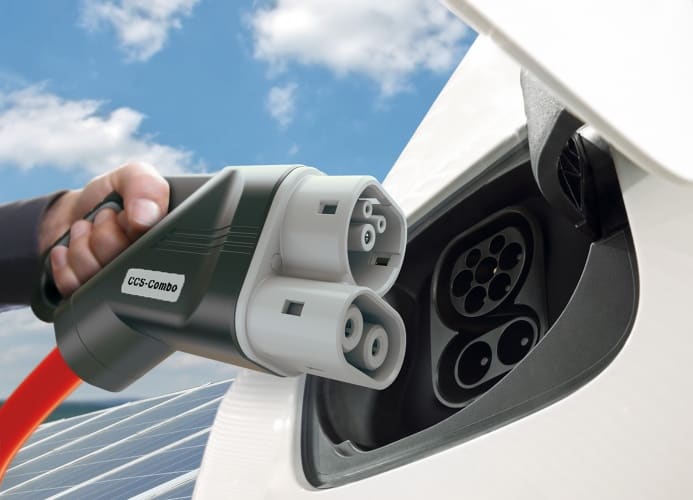deliver a network of ultra-fast charging sites across Europe.

BMW Group, Daimler AG, Ford Motor Company and Volkswagen Group with Audi and Porsche have signed a Memorandum of Understanding (MOU) to create the high-powered DC charge network for electric vehicles (EVs). The infrastructure will provide power levels up to 350kW, with an initial rollout of 400 stations beginning in 2017. According to the consortium, thousands of charge points covering long-distance routes across the continent should be available by 2020.
“This high-power charging network provides motorists with another strong argument to move towards electric mobility”, said Harald Krüger, chairman of BMW’s Board of Management. “The joint project is another major milestone clearly demonstrating that competitors are combining forces to ramp-up e-mobility.”
The network will be based on Combined Charging System (CCS) standard technology, expanding on the existing technical standard for AC and DC charging of electric vehicles to the next level of capacity for DC fast charging. EVs that are designed to accept the full 350kW will be able to recharge at the stations in a fraction of the time it currently takes, regardless of brand.
“We intend to create a network that allows our customers on long-distance trips to use a coffee break for recharging”, said Rupert Stadler, chairman of the Board of Management of Audi.
“Reliable fast charging services are a key factor for drivers to choose an electric vehicle. With this cooperation we want to boost a broader market adoption of e-mobility and speed up the shift towards emission-free driving.”




Glasgow trial explores AR cues for autonomous road safety
They've ploughed into a few vulnerable road users in the past. Making that less likely will make it spectacularly easy to stop the traffic for...